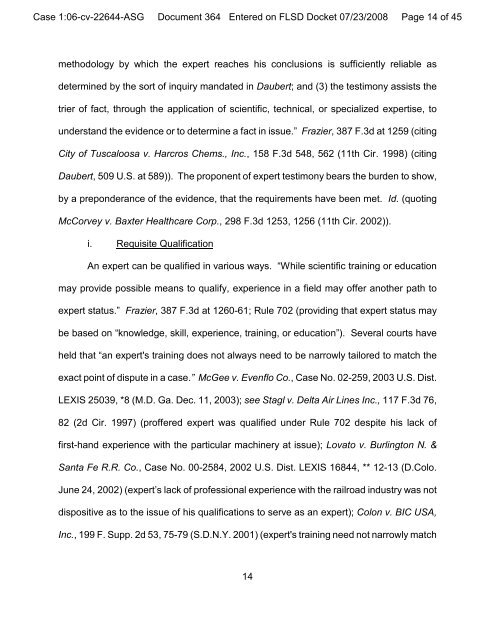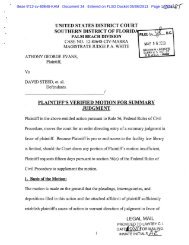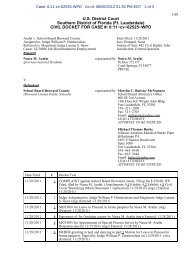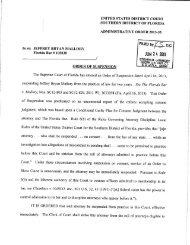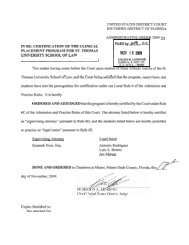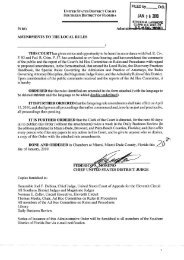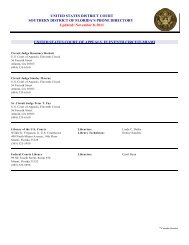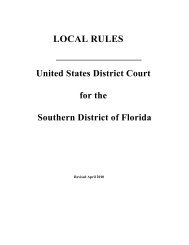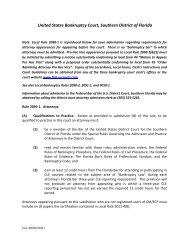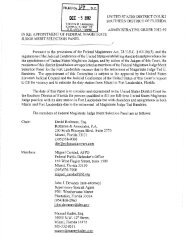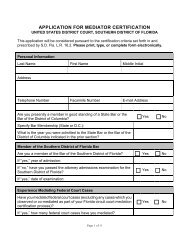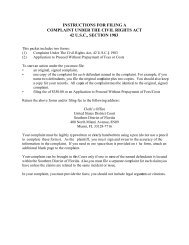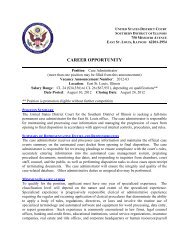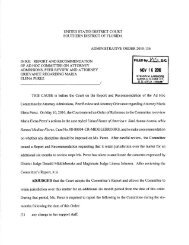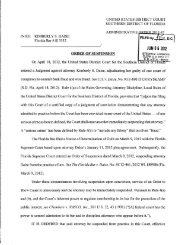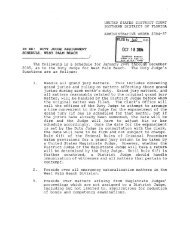Motion in Limine - United States District Court
Motion in Limine - United States District Court
Motion in Limine - United States District Court
Create successful ePaper yourself
Turn your PDF publications into a flip-book with our unique Google optimized e-Paper software.
Case 1:06-cv-22644-ASG Document 364 Entered on FLSD Docket 07/23/2008 Page 14 of 45<br />
methodology by which the expert reaches his conclusions is sufficiently reliable as<br />
determ<strong>in</strong>ed by the sort of <strong>in</strong>quiry mandated <strong>in</strong> Daubert; and (3) the testimony assists the<br />
trier of fact, through the application of scientific, technical, or specialized expertise, to<br />
understand the evidence or to determ<strong>in</strong>e a fact <strong>in</strong> issue.” Frazier, 387 F.3d at 1259 (cit<strong>in</strong>g<br />
City of Tuscaloosa v. Harcros Chems., Inc., 158 F.3d 548, 562 (11th Cir. 1998) (cit<strong>in</strong>g<br />
Daubert, 509 U.S. at 589)). The proponent of expert testimony bears the burden to show,<br />
by a preponderance of the evidence, that the requirements have been met. Id. (quot<strong>in</strong>g<br />
McCorvey v. Baxter Healthcare Corp., 298 F.3d 1253, 1256 (11th Cir. 2002)).<br />
i. Requisite Qualification<br />
An expert can be qualified <strong>in</strong> various ways. “While scientific tra<strong>in</strong><strong>in</strong>g or education<br />
may provide possible means to qualify, experience <strong>in</strong> a field may offer another path to<br />
expert status.” Frazier, 387 F.3d at 1260-61; Rule 702 (provid<strong>in</strong>g that expert status may<br />
be based on “knowledge, skill, experience, tra<strong>in</strong><strong>in</strong>g, or education”). Several courts have<br />
held that “an expert's tra<strong>in</strong><strong>in</strong>g does not always need to be narrowly tailored to match the<br />
exact po<strong>in</strong>t of dispute <strong>in</strong> a case.” McGee v. Evenflo Co., Case No. 02-259, 2003 U.S. Dist.<br />
LEXIS 25039, *8 (M.D. Ga. Dec. 11, 2003); see Stagl v. Delta Air L<strong>in</strong>es Inc., 117 F.3d 76,<br />
82 (2d Cir. 1997) (proffered expert was qualified under Rule 702 despite his lack of<br />
first-hand experience with the particular mach<strong>in</strong>ery at issue); Lovato v. Burl<strong>in</strong>gton N. &<br />
Santa Fe R.R. Co., Case No. 00-2584, 2002 U.S. Dist. LEXIS 16844, ** 12-13 (D.Colo.<br />
June 24, 2002) (expert’s lack of professional experience with the railroad <strong>in</strong>dustry was not<br />
dispositive as to the issue of his qualifications to serve as an expert); Colon v. BIC USA,<br />
Inc., 199 F. Supp. 2d 53, 75-79 (S.D.N.Y. 2001) (expert's tra<strong>in</strong><strong>in</strong>g need not narrowly match<br />
14


